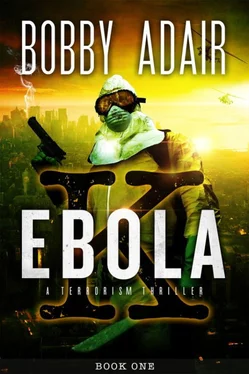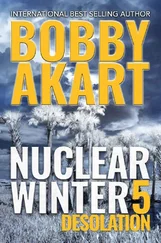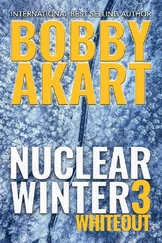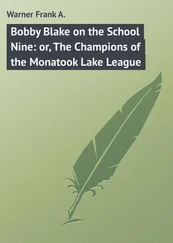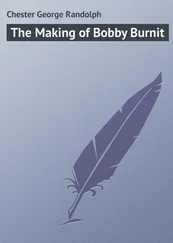Emmanuel Muhangi was surprised when he saw Austin stumble, then fall in his coffee field. Not being an excitable type, he squatted in front of his small house and watched for a moment, but Austin never got back up.
It wasn’t until his seven-year-old son—who recognized Austin from previous visits—asked why Austin had fallen. It was then that Emmanuel decided to get up and investigate.
After crossing his coffee field, he found Austin—not just fallen, but fainted. Emmanuel shook him but was unable to wake Austin. Upon turning Austin over, he felt his skin, which was burning hot with fever. He’d vomited on himself.
Emmanuel turned to his son and told him to quickly go back to the house and get Emmanuel’s wife. Emmanuel, wire-thin but strong from hoisting heavy bags of coffee onto his shoulders, lifted Austin in much the same fashion. He carried Austin to the shed where he and the other mzungu kids slept during their visits.
Emmanuel’s wife came in with a bucket of water and some cloths. His daughter was right behind her. They both went to work dabbing the cold water on Austin’s skin with the cloths and squeezing dribbles into his mouth.
It was obvious to Emmanuel that Austin was very sick. Sick beyond his wife’s abilities to nurse him back to health. After much discussion, Emmanuel left his wife and children with the sick young man and took off at a run down the path that led to Kapchorwa and the closest hospital.
The trailhead was deceptive. It started out running on a level path across the slope of the mountain. Around a bend it turned upward and forced the group of Pakistani-trained jihadists to hike uphill through the middle of the day. By the time the troop of hikers crested a rise and started to head back down in earnest, they were sweating, thirsty, and spread over a quarter of a mile of the trail.
Salim, walking beside Jalal, could see a group of three about forty or fifty meters ahead. The pair behind was at least that far back.
“What do you think?” Jalal asked.
Salim looked around. “About?”
“This bloody hike through the mountains.”
“I’m tired.”
“No, mate.” Jalal shoved Salim playfully. “You’re so morose. Do you think they’re going to hide us up here?”
Salim thought for a moment. “They could have put us in any one of those thousand isolated houses we saw on the way out here. Why hide us on the mountain in the forest?”
“It doesn’t make any sense to me,” Jalal admitted.
“And why did we leave the buses? Why are we walking?” Salim’s doubts were overtaking him again. He looked over his shoulder to see how close the nearest followers were. “For as long as we drove this morning, I wonder if we’re crossing the border.”
“Which border?”
“I’m guessing Uganda,” replied Salim.
“Why smuggle ourselves across? We have our passports.”
“It makes no sense to me.” Salim lowered his voice. “If our passports show that we’ve entered Kenya, they’ll look suspicious if we leave Africa from another country without a stamp for entering that country.”
“Unless they’re planning an operation in Uganda.”
Salim shook his head. “That doesn’t make any sense either.”
“Why not?”
“If they wanted to hit something in Uganda, why bring us?”
Jalal looked around. “Mate, I don’t know how special you think we are, but you do know what we signed up for, right?”
“They could send anybody to Uganda. It’s easy to get fighters here. I’ll bet they even have training camps in Africa.” Salim pointed to the group of three ahead of them. “Those ones are German.”
“Germans? How do you know?”
“I heard them speaking German this morning when we first stopped. I heard some other guy speaking English.”
“British or American?”
“American,” Salim said in a low voice. “I think we all hold Western passports. If that’s the case, why send us to Africa? We’d be so much more valuable to the movement if they sent us back to our countries.”
“That’s what I figured they were planning all along. To send us back.”
“Right? So why drag us through the jungle into Uganda? It doesn’t make any sense.”
Jalal looked around as though there might be some answer in the trees that wasn’t readily apparent. “No, mate. It doesn’t make any sense.”
As the troop made their way down the slope, they eventually closed ranks. They came to a dirt road where a big Isuzu farm truck was waiting for them to load themselves up before heading west once again.
In the late afternoon sun, Salim leaned over the side of the truck and saw tin roofs and a widening in the dirt road up ahead. A town, a small town. The truck rolled past several men with automatic weapons standing in the bushes. More men were in a position in the trees on the opposite side of the road, looking in the direction from which they’d come. They were guarding the road against anyone coming into town. Salim looked at Jalal with a question on his face, but Jalal was bored and staring at the floor. He never even saw the men guarding the road.
Whatever was happening, they were close to finding out something. Salim was sure of that.
The truck came to a stop and a cloud of red dust billowed around, dropping another layer on them as they coughed. The driver killed the engine, got out, and closed the door. The driver and his passenger came to the back of the truck. The passenger—the man in charge—held up a hand as some of the men in the truck started to get up. “Wait here,” he said.
Salim slumped back against the side of the truck. A few of the dust-covered men shared a look. They weren’t pleased. Salim wasn’t the only one whose curiosity was grating at his patience. The rest of the men kept their feelings more hidden.
Another half-hour passed with the men waiting. They shuffled in their seats. They looked around. They passed silent questions with their eyes.
“Assalamu alaykum.”
Salim looked toward the voice, a new man was standing on the ground at the back of the truck.
He said, “Each of you has completed your training.”
The speaker’s face was covered, whether to keep his identity secret or the road dust off, Salim could only guess.
“You will return to your home countries in the West. You will receive instructions on the way.”
Salim looked quickly to the sky and thanked Allah.
“Before you return, you need a cover story. You may be required to explain your absence from your Western lives. Your story will be that you lent humanitarian assistance to the people in this village who are in the midst of a typhoid epidemic. Do not drink the local water.”
The speaking man held up a plastic water bottle, the kind that Salim hadn’t seen since before boarding the last plane to Lahore a few months prior. “Drink only from the bottles provided, or you will get sick. You will see men in protective suits. Do not speak to them. They are from international aid agencies. They are afraid of typhoid. You should not be. You will be photographed helping these people so that evidence exists of your work here. When you return to your countries, the pictures will be provided to you. You will need to post them on your social media pages to build your story. You will be notified when to start doing this.”
Salim smiled inside. Helping sick people in Africa was a great cover to explain his absence over the past months. He might be able to make his escape back into American society without having to go to the FBI. Perhaps an anonymous life somewhere far away from his family in Denver, maybe under a new name, would be the key to getting his freedom back and putting this mistake behind him.
Читать дальше
